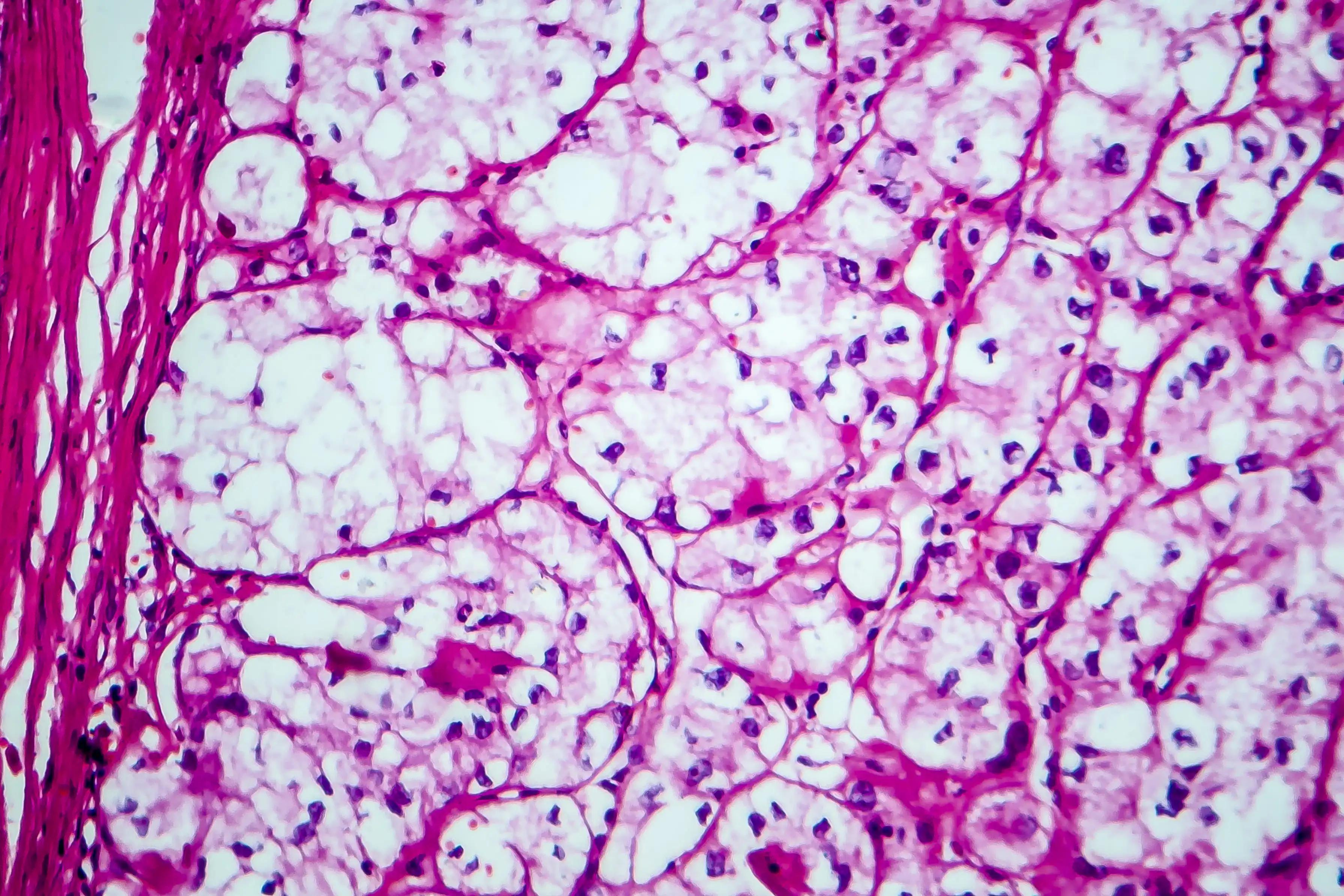KEY TAKEAWAYS
- The phase 2 trial aimed to study presurgical therapies’ impact on RCC TME, identifying resistance mechanisms and treatments.
- The primary endpoints were changes in DCE-MRI assessed Ktrans and CD8+ T cell density.
- Researchers noticed significant potential in WIRE to identify novel biomarkers and treatment strategies for RCC; further investigation is ongoing.
Despite the success of immunotherapy and VEGFR directed tyrosine kinase inhibitors (TKIs) for the treatment of renal cell carcinoma (RCC), a significant proportion of patients display primary or secondary resistance to systemic therapy. New treatment approaches are needed for these patients.
In this presurgical clinical trial, Grant Stewart and the team aimed to study the effects of cancer treatment on the tumour microenvironment (TME), comparing baseline biopsy with post-treatment nephrectomy in a ‘window of opportunity’ study. The results gave insight into the mechanisms of new cancer therapies, that may be advanced into further clinical trials.
They performed an inclusive analysis of the WIRE trial (NCT03741426), a phase II, multi-centre, multi-arm, non-randomised, neoadjuvant clinical trial platform aimed at establishing proof of mechanism for new therapies in RCC.
The trial comprises 5 investigational arms: Cediranib (a VEGFR directed TKI), Cediranib + Olaparib (a PARP inhibitor), Olaparib, Volrustomig (anti PD-1/CTLA4 bispecific), and Rilvegostomig (anti PD-1/TIGIT bispecific). Utilizing a Bayesian adaptive design, the study optimizes recruitment with interim analyses to determine whether to continue, stop for futility, or proceed to the next arm based on pre-specified criteria.
Eligible patients, diagnosed with cT1b+, cN0/1, cM0/1 clear cell RCC, and planning surgery without medical contraindication to trial therapy, undergo baseline biopsy and multiparametric dynamic contrast enhanced (DCE) MRI of the primary tumor. Treatment duration varies by arm, with imaging and tissue sampling performed pre- and post-treatment to assess primary endpoints including changes in DCE-MRI assessed capillary permeability (Ktrans) and CD8+ T cell density.
Secondary endpoints encompass RECIST v1.1 primary tumor response and adverse events (AE’s). A translational science program accompanies the trial, utilizing advanced techniques like imaging mass cytometry and single cell RNA sequencing to elucidate treatment response mechanisms across investigational arms.
The study concluded that WIRE presents a unique opportunity to explore the mechanisms of new therapies for RCC, leveraging coordinated efforts across surgical, oncological, radiological, and pathological specialties. Its adaptive design facilitates efficient patient allocation to treatment arms, optimizing data collection for each investigational medicinal product (IMP). WIRE’s potential to identify novel biomarkers of response and toxicity may significantly impact treatment decisions for patients with RCC. The data generated serves as a pivotal foundation for advancing these IMPs into further trials targeting advanced disease.
The trial was sponsored by CCTU- Cancer Theme.
Source: https://kcrs.kidneycan.org/wp-content/uploads/2024/06/KCRS24-Abstract-Book-6.27.24.pdf
Clinical Trial: https://clinicaltrials.gov/study/NCT03741426
Stewart G, Jones J, Warren A, et al. (2024). “WIRE: Window of Opportunity Clinical Trials Platform for Evaluation of Novel Treatments Strategies in Renal Cell Cancer.” Presented at KCRS 2024 (Abstract 75)



